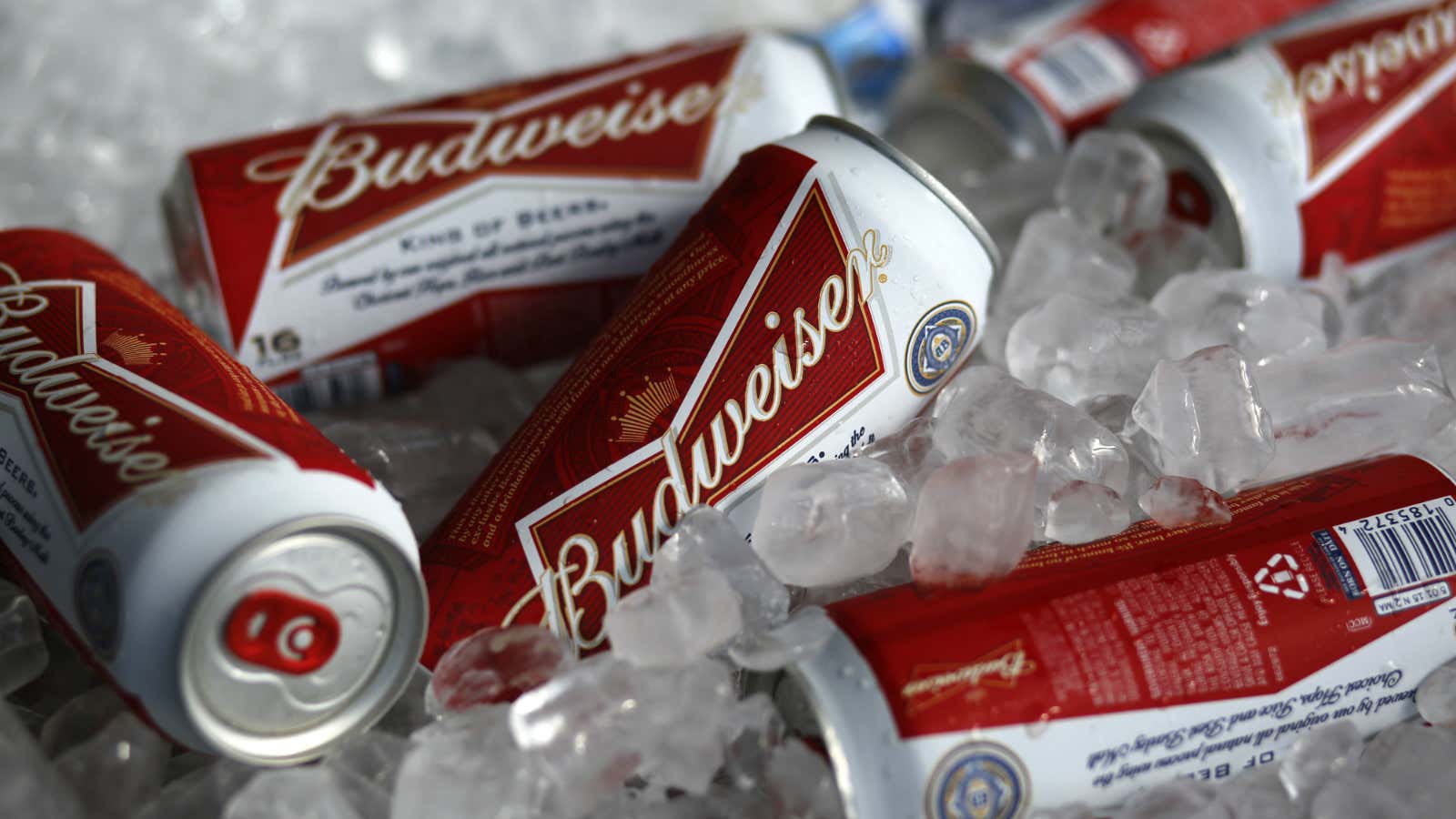Late last year, Anheuser-Busch (AB) InBev, the world’s largest brewer, announced its plans (pdf) to produce all its beer using renewable energy by 2025.
By moving to renewable power at such scale, AB InBev claimed it would annually source 6 terawatt-hours of electricity—the amount produced by 400 football fields of solar panels annually—from sustainable sources across markets where it has a presence.
On June 05, the company announced that it had kicked off its mission in India. AB InBev’s Mysuru plant that brews Budweiser beer will soon be powered up to 80% by solar energy, making it the company’s third facility globally to run on renewable power. Across the world, the company plans to buy between 75% and 85% of its electricity requirement through direct power-purchasing agreements. The remaining will come from on-site production facilities such as solar panels.
AB InBev, which reported $56.4 billion in turnover (pdf) in 2017, sells over 500 brands of beers in 150 countries. With a 25% share of the Indian beer market, AB InBev is the country’s third-largest beer maker, selling Budweiser, Haywards, Corona, Knock Out, Foster’s Lager, and Royal Challenge. Four of its 17 Indian plants, including the one in Mysuru, produce Budweiser beer.
The Mysuru brewery will use around 30 megawatts of power annually, which will be bought from Canadian renewable energy provider Amp. Ontario-based Amp, which entered India in 2015, specialises in providing clean energy, especially solar power, in markets such as Japan, Australia, and America. In 2016, it bought a stake in Suzlon’s solar power project in the southern Indian state of Telangana for Rs14 crore.
AB InBev’s move comes at a time when India, the world’s third-largest solar market, has big plans to expand its renewables sector. While solar still accounts for only 5% of all energy production in India, the country plans to scale up its installed capacity from the current 21,000 MW to around 100,000 MW by 2022.
